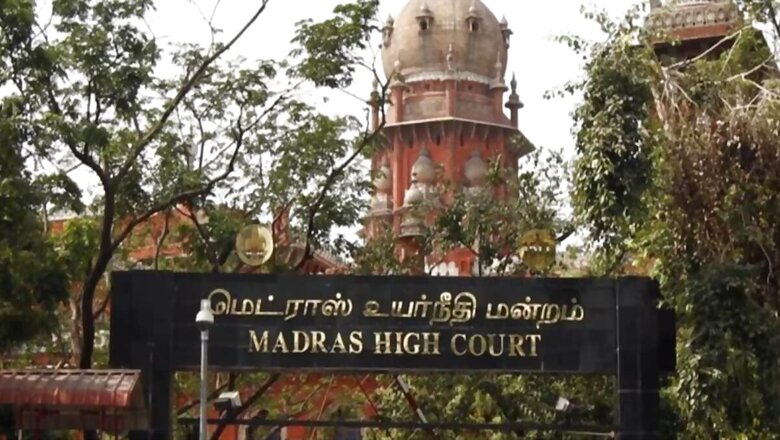
views
The Madras High Court has urged the Chief Justice to constitute a full bench to decide on Tamil Nadu’s demand for fixing quota on seat sharing in the minority self-financing professional educational institutions.
Justice N Anand Venkatesh of the Madras HC framed three questions for the full bench’s reference. First, whether a 1998 order issued by the Higher Education (J1) Department was in the nature of a stop-gap arrangement till the top court’s judgment in TMA Pai Foundation and Others Vs. State of Karnataka and others (2002).
Second, whether the said government order, which insisted the Self-Financing Educational Institutions imparting professional courses of education established and administered by any minority to fill up 50% quota, on the basis of any merit list prepared by the competent authority, can be enforced in the light of the top court’s judgments in TMA Pai case and P.A. Inamdhar’s case?
And third, whether the judgment of a division bench of the high court in Justice Basheer Ahmed Sayeed College for Women (Autonomous), Teynampet, Chennai Vs. State of Tamil Nadu and Others (2023), upholding the power of the state for seat-sharing to an extent of 50% through the merit list prepared by the competent authority, is not in line with the top court’s rulings in the above-mentioned cases and hence requires reconsideration.
The judge opined that the decision of the division bench did not thoroughly take into account the ruling in PA Inamdhar’s case, which took away the power of the state to fix quota for seat sharing.
The state, through a Government Order (GO) dated June 17, 1998, mandated that Self-Financing Educational Institutions offering professional courses under the minority administration allocate 50% of seats based on the merit list determined by the competent authority.
In September this year, a division bench of the high court concluded that the GO was neither arbitrary nor unreasonable and did not contravene any statute, rule, or regulation.
In the current petition challenging seat allocation, the petitioner, a dental college, contended that the GO had lost its significance following the Supreme Court’s judgment in PA Inamdhar’s case. They argued that the state’s insistence on seat-sharing could lead to the nationalisation of seats, a stance previously disapproved by the Supreme Court.
In response, the state asserted that since the division bench had already upheld the GO, the single judge could not disagree, as the order was binding. However, the single judge noted that the division bench had overlooked two other orders from single judges of the Madras High Court, which held that the GO could not be enforced.
These judges also stressed that the impugned GO was only an interim arrangement until the judgment in TMA Pai’s case, and it ceased to have effect thereafter.
Despite objections raised about the jurisdiction of a single judge to refer the matter to a larger bench, the court observed that a single judge, harbouring doubts about the decision of a larger bench, could appropriately seek reference under the powers vested with the Chief Justice, as per Order 1 Rule 6 of the High Court Madras Appellate Side Rules, 1965.



















Comments
0 comment